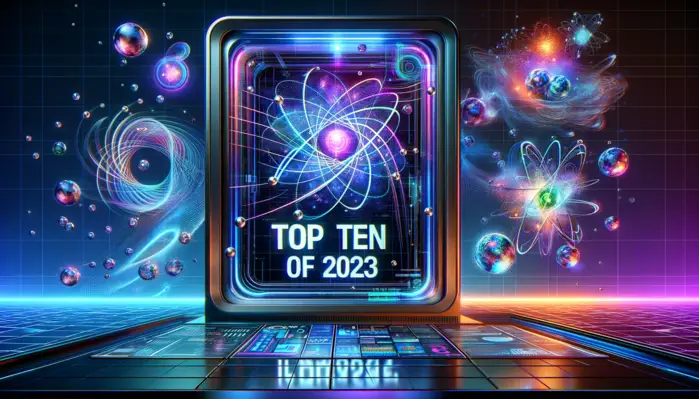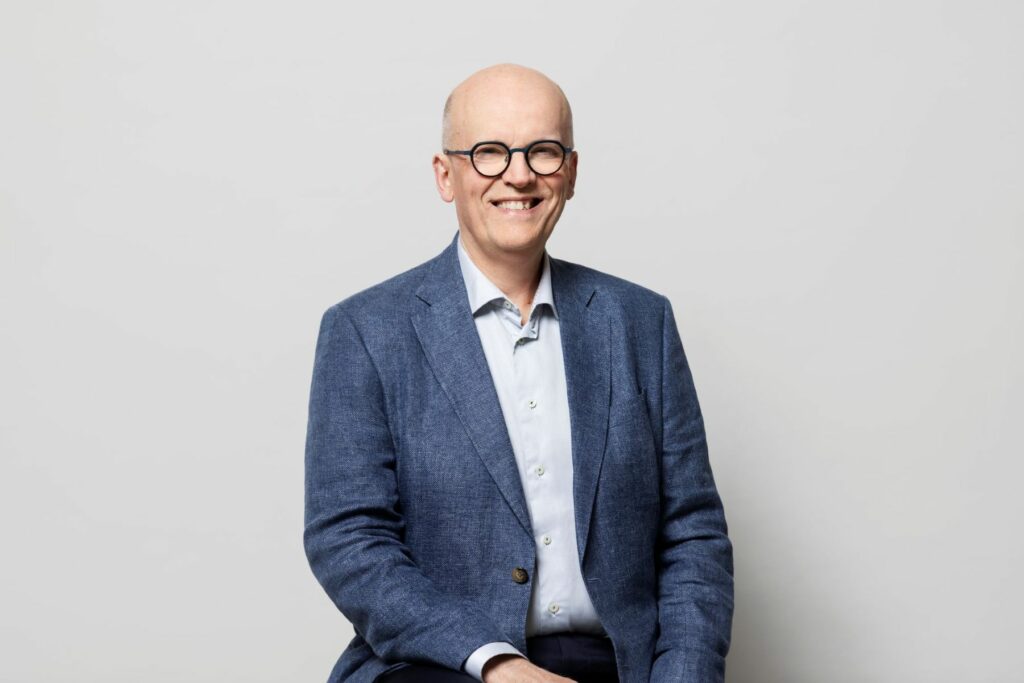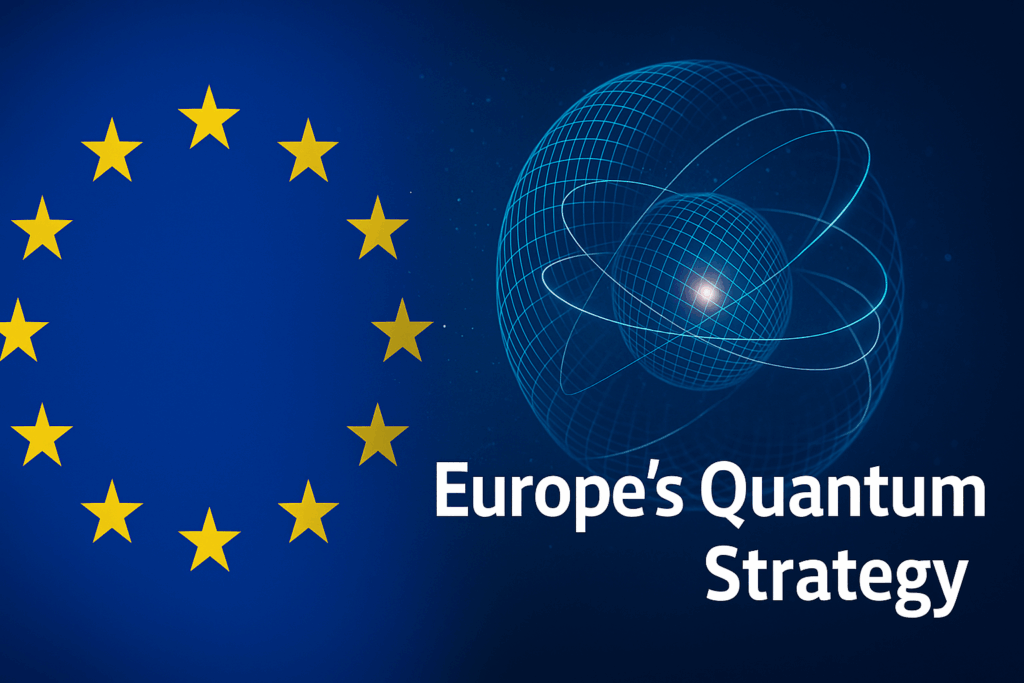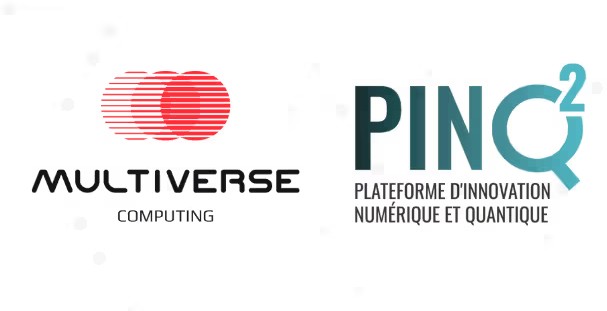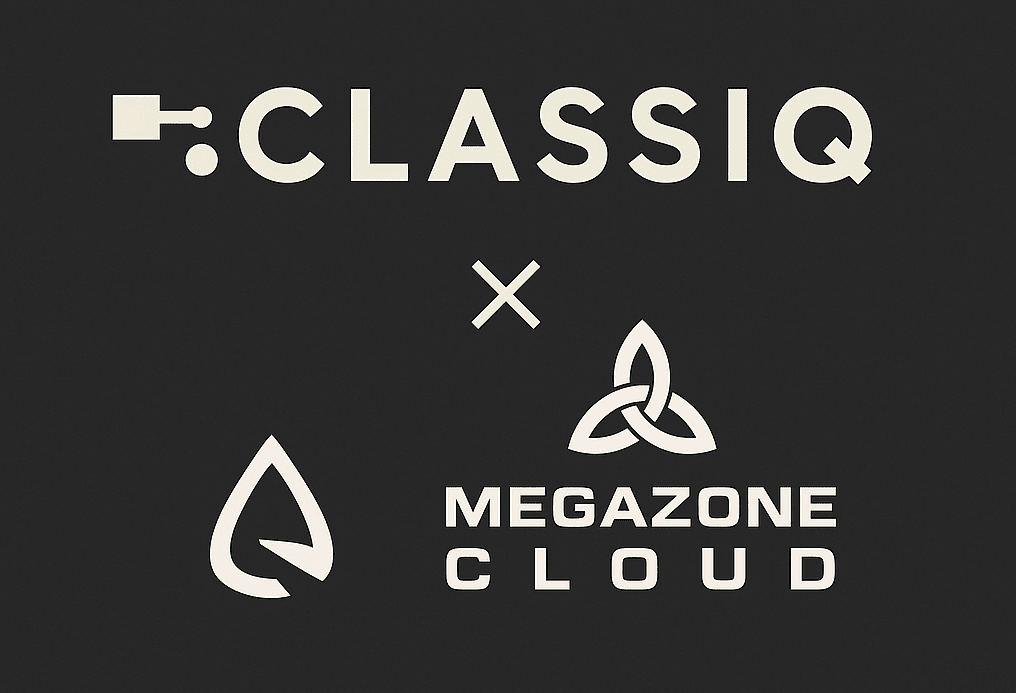We expected an “interesting” year in quantum 12 months ago.
We were right, but not always in ways we expected.
Emerging from a pandemic, facing a sharp economic lull, diving deep into the incredibly baffling world of quantum science and battling against a range of political and military conflicts, the quantum industry felt at times like a roller coaster of good news stories and bad news stories.
Close to 2 million people checked out stories about quantum research advances, funding rounds, and Lego’s quantum computing proposal on The Quantum Insider this year — and here are the top ten Quantum news stories of 2023, according to our own analytics.

#1 Russian Scientists Present 16-Qubit Quantum Computer
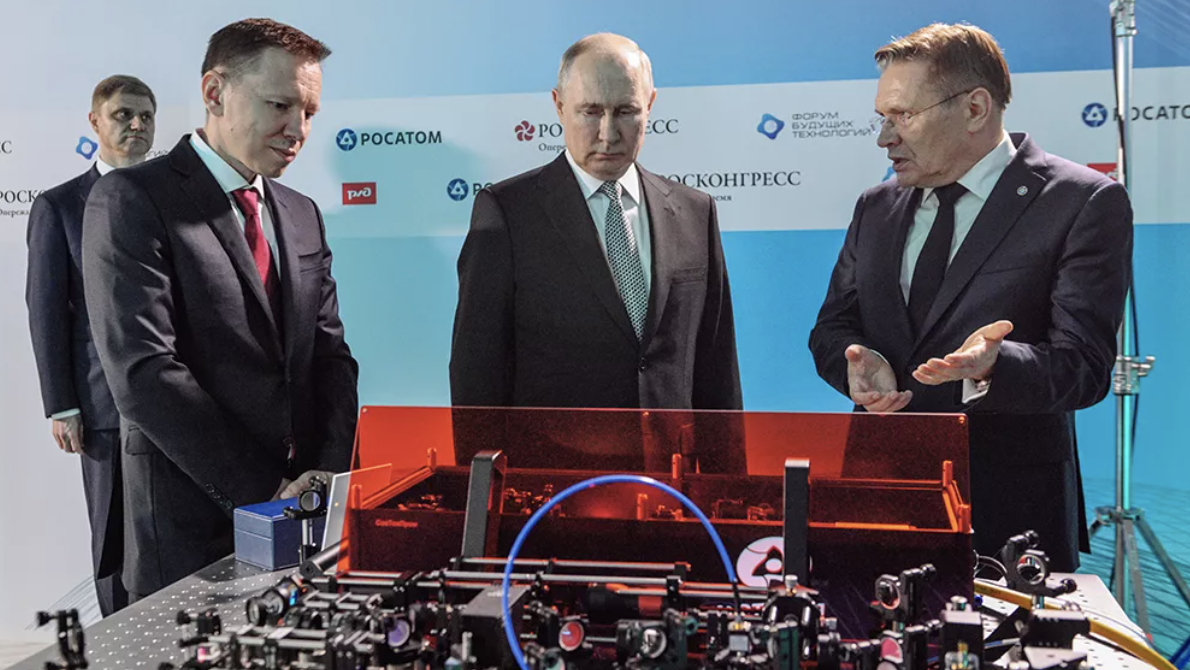
A team of Russian physicists presented a 16-qubit quantum computer at the Forum for Future Technologies in Russia that appears to combine trapped ion and photonics approaches, according to a post from Rosatom, the Russian State Nuclear Energy Corporation . The computer is the first quantum computer developed in Russia, according to the post, which was translated into English by a computer. The device is still in the early stages of development and is small by standards already achieved by global quantum leaders. However, it has the potential to be a powerful tool for research and development, the scientist said. The team added that they have already used the device for simulating simple molecules.
#2 ChatGPT-4 Receives ‘B’ On Scott Aaronson’s Quantum Information Science Final — Immediately Emails The Dean Seeking A Better Grade
In a recent experiment, noted quantum expert and educator Scott Aaronson had GPT-4 take the actual 2019 final exam from Introduction to Quantum Information Science, an honors upper-level undergrad course at UT Austin. The resulting grade — a B — did not sit well with the large language mode — LLM — system. According to a blog post on Aaronson’s blog Shtetl-Optimized, Aaronson and his head teacher’s assistant gave GPT-4 the problems via their LaTeX source code. Quantum circuit answers relied on a qcircuit package, which GPT-4 again understands, or used an English description of the circuit.
#3. Time Is on My Sides: Researchers Show Double-Slit Experiment Also Applies to Time
Scientists have been able to confirm the wave-particle duality of quantum objects like photons, electrons and atoms through double-slit experiments.
Now it looks like it’s time’s turn.
In a study published in Nature, an Imperial College-led team of researchers were able to create a time-domain version of the double-slit experiment using a beam of light that was twice gated in time.
#4 Intel Announces Release of ‘Tunnel Falls,’ 12-Qubit Silicon Chip
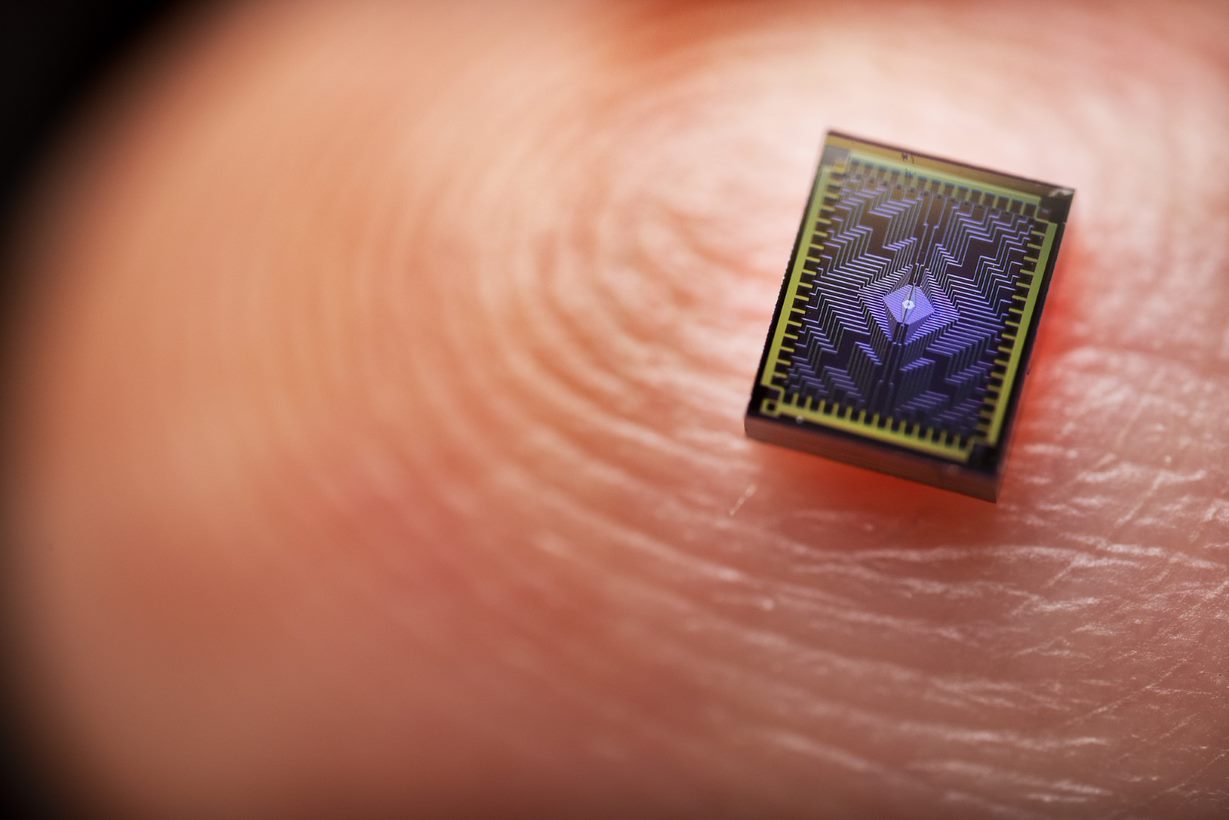
Intel announced the release of its newest quantum research chip, Tunnel Falls, a 12-qubit silicon chip, and it is making the chip available to the quantum research community. In addition, Intel is collaborating with the Laboratory for Physical Sciences (LPS) at the University of Maryland, College Park’s Qubit Collaboratory (LQC), a national-level Quantum Information Sciences (QIS) Research Center, to advance quantum computing research.
#5 Lego Poised to Enter The Quantum Computer Market
Disregarding an ever-increasing number of modalities and approaches and indifferent to the intense competition from savvy startups and techno giants, Lego could enter the race to build a quantum computer.
Well, at least one Lego fan designer is readying the Denmark-based toy company for the quantum era.
In a product suggestion, a Lego user pitched creating IBM Quantum Computer System in Lego Ideas, a site that allows users to submit suggestions for future logo sets.
#6 Yin-Yang? Researchers Capture The Mysterious Dance of Entangled Photons in Real-Time
Researchers at the University of Ottawa, in collaboration with Danilo Zia and Fabio Sciarrino from the Sapienza University of Rome, recently demonstrated a novel technique that allows the visualization of the wave function of two entangled photons, the elementary particles that constitute light, in real-time.
#7 Google Claims Latest Quantum Experiment Would Take Decades on Classical Computer
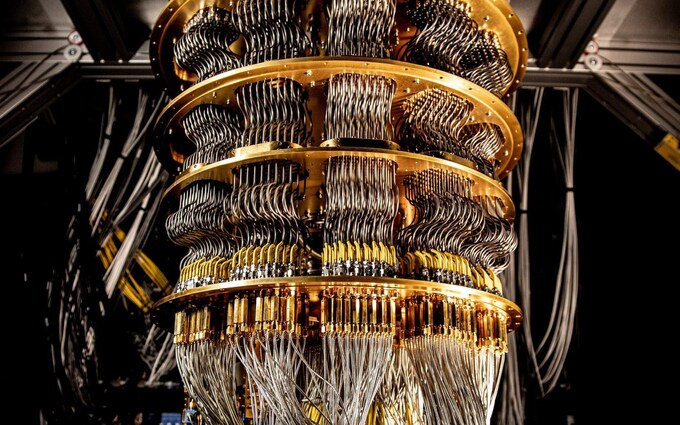
Staking another claim of quantum advantage, Google scientists are reporting that they completed a computational task on a quantum computer that would take a classical supercomputer 47 years to complete, the Telegraph reports. Google scientist published their findings on the pre-press server ArXiv. Scientists often use the server to distribute findings before seeking official peer review.
#8 Germany Announces 3 Billion Euro Action Plan For a Universal Quantum Computer
Germany’s action plan for quantum technologies is set to invest a total of 3 billion euros in the development of a universal quantum computer by 2026, according to the federal government’s “action concept for quantum technologies,” according to German media.
The aim is for Germany to catch up with international development in the US and China. Of the 3 billion euros, the lead research ministry will receive 1.37 billion euros of the funds, with an additional 800 million euros in the budgets of state-financed research institutes. The cabinet is expected to launch the concept by the end of April.
#9 How Would Room-Temperature Superconductors Change Quantum Computing?

With news that a South Korean research team created a superconducting material — LK-99 — that reportedly operates at room temperature and at ambient-pressure, the scientific world — and even the mainstream media — are speculating how this technology could be tapped and what would be the resulting benefits. The inventors of the room-temperature superconducting material — LK-99 — speculate the invention would disrupt nearly every industry on some level and call out quantum specifically.
They write in their paper on the invention: “The LK-99 has many possibilities for various applications such as magnet, motor, cable, levitation train, power cable, qubit for a quantum computer, THz Antennas, etc. We believe that our new development will be a brand-new historical event that opens a new era for humankind.” It’s important to note that while room-temperature superconducting advances may clear some of the scalability hurdles, warm temperatures still impact quantum errors. That being said, and while scientists are still trying to verify this work, how will it affect quantum computing? If at all?
#10 Delft Researchers Say They Found A Prime Candidate For ‘The Perfect Qubit’
Researchers from QuTech improved the so-called ‘Andreev spin qubit’ in a critical way and believe it can become a prime candidate in the pursuit of a perfect qubit. The new type of qubit is created in a more reliable and intrinsically stable way, compared to previous versions, by combining the advantages of two other types of qubits. They publish their work in Nature Physics.
For more market insights, check out our latest quantum computing news here.

